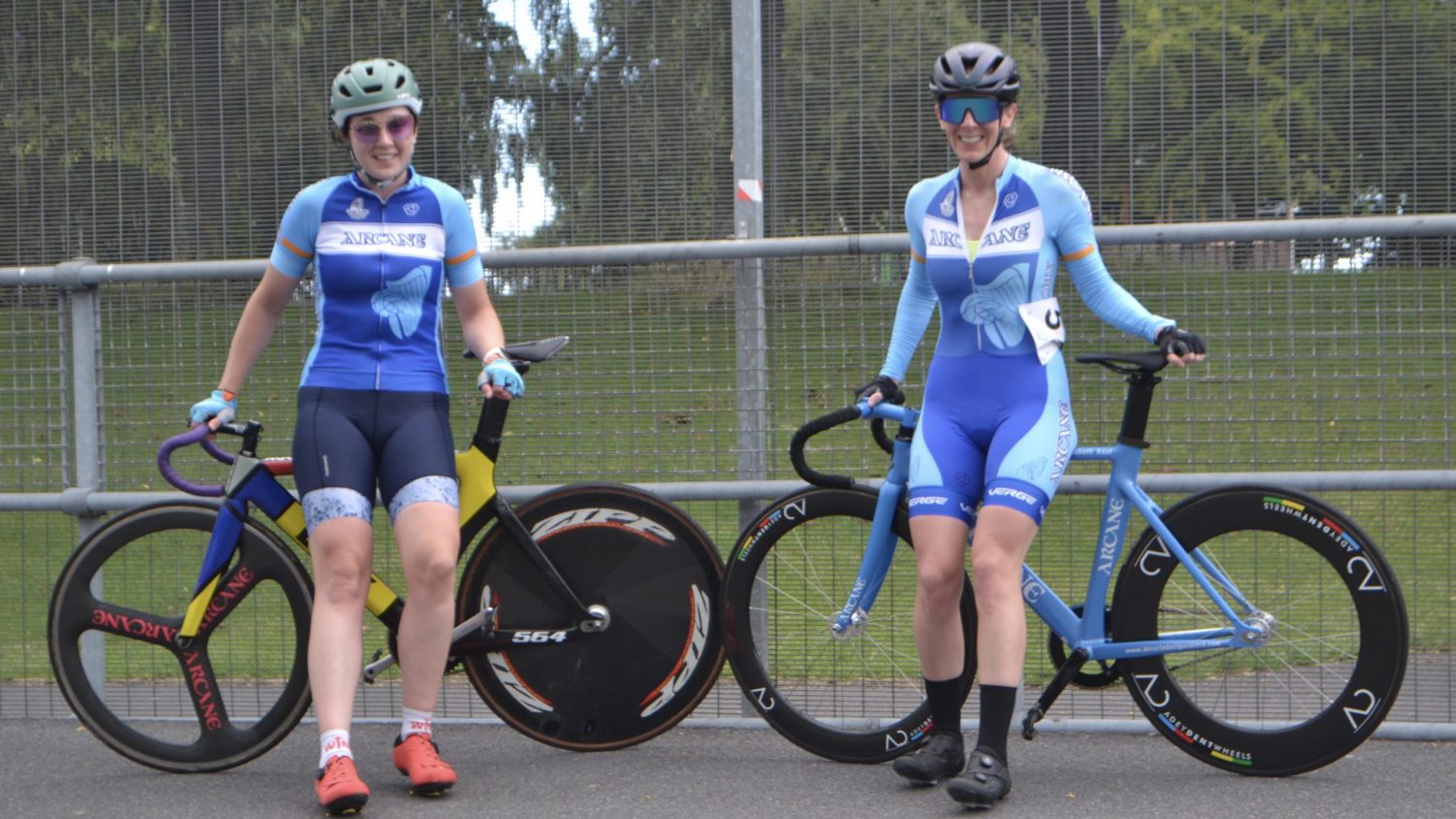Intersex / Trans & Cycling

An extract from an article we contributed to for Intersex Ireland : Sports Ban
Recently, we have seen a wave of policies introduced designed to exclude transgender women from competing in women’s sports.
The Olympic motto of ‘Faster, Higher, Stronger – Together’ recognises the unifying power of sport and the importance of solidarity. However, in November 2021, the International Olympic Committee issued a framework document to our governing sport bodies granting them the power of exclusion.
While the IOC Framework rejects the presumption that the male sex confers an athletic advantage, and discourages continued reliance on a testosterone proxy as the exclusive basis for eligibility for the women’s category, it encourages consideration of alternative opportunities within the sport, such as open events.
Swimming and Cycling were the first to react. The UCI (Union Cycliste Internationale) affiliated ‘British Cycling’ extended the waiting period for a Trans athletes return to competition by increasing Emily Bridges ban for a further year, and suspending the eligibility criteria pending review.
World swimming’s governing body FINA went a step further and voted for new eligibility rules that restrict the participation of transgender athletes in elite women’s competitions.
The creation of an ‘open category’ adds further segregation for Trans athletes.
FINA also availed of the option of an ‘Open Category’ for Trans women. This (IOC) option will be adopted by sporting bodies that are eager to fix a problem that does not exist. The policy is the strictest from any Olympic sports body and effectively bars any transgender women who have gone through puberty from competing in women’s events.
Those who campaigned for the change argued that people who have gone through male puberty have physical advantages and therefore women’s competition needed to be protected. However, with the eligibility for HRT intervention standing at 18 years of age in most countries, this can be seen as nothing more than a ban and exclusion of Trans women from the Olympic organisation.
The FINA ruling has stated an aim at protecting women’s sport, but in effect it has attempted to define a woman.
FINA has declared that all athletes must certify their chromosomal sex with their Federation in order to be eligible for competitions. They also reserve the right to include a chromosomal sex screen in its anti-doping protocols to confirm such certification.
This will affect all women, and it opens the sport to the simple premise of j’accuse.
The humiliating practice of ’sex testing’ women has been used in the past by the IOC, and they should have no desire to go back there.
The FINA decision has been fuelled by University of Pennsylvania swimmer Lia Thomas, who became the first transgender NCAA champion in Division I history after winning the women’s 500-yard freestyle earlier this year. Lia (& Emily Bridges in the UK), are athletes at the forefront of a battle for acceptance.
Female-to-male transgender athletes will continue to be eligible to compete in men’s races without any restriction.
We have yet to see a Trans woman dominating at the Olympics, or even winning a medal. The detractors will point at the handful of Trans women that have won at National or College level as evidence that they have an advantage, but are we really saying that they can compete, but should never win (ever)?
While all athletes have a place in Aquatic sports, FINA acknowledges that the application of this Policy means that some women will have more rights than others.
Most recently, the IRFU in Ireland banned transgender women from competing in women’s rugby.
We are told over and over that changes to sporting laws that exclude transgender women were created to protect women and girls, to make things fairer. However, just last week in Utah we saw news of parents whose children lost a sporting event call for investigation into the gender of the winning child. The UHSAA (Utah High School Activities Association) accessed the child’s records all the way back to kindergarten without informing the child or her parents. The association claimed that they had received complaints in relation to the winning child that suggested “that female athlete doesn’t look feminine enough”.
If this example is a sign of things to come, then it is likely that sports are to become safer and fairer for only some women and girls, those that adhere to western binary notions of femininity, and excluding those that don’t.
While there have been similar stories dating back to at least the 1930s with Dora Ratjen, a german Olympian excluded upon discovery that they are intersex, the current wave can be said to have begun with the destruction of Caster Semenya’s career. The mistreatment of Caster Semenya by both officials and media illuminates not just the intersection of intersex and western culture but also the intersection of intersex, race and gender.
Semenya’s treatment by the IAAF and western authorities has been compared to that of Saartjie Baartman almost 200 years earlier who was exhibited, investigated and subjected to various indignities even after death; her body used to demonstrate a supposed racial inferiority to white bodies. Semenya’s treatment allows us also to examine how certain deviations from established cultural norms may be punished if considered dangerous while other deviations are celebrated and lauded.
American Olympian swimmer Michael Phelps is the most decorated Olympian of all time. Although there is little doubt that Michael Phelps has trained hard to achieve his success, his genetic advantages as a swimmer have been widely acknowledged, such as reduced lactic acid production, a longer torso, shorter legs, longer arm span and larger feet.
While Semenya is required to subject herself to medical interventions to reduce her genetic advantages, Michael Phelps’ genetic advantages are applauded in sports articles. While Michael Phelps has crossed the boundary of what might be considered “normal” white cisgender maleness, he crosses it in a direction considered socially acceptable by exceeding the limits of what it means to be a white cisgender man, moving in a socially accepted direction along the spectrum of male to female either side of intersex. Were he to reverse direction and publicly reveal himself to be a transgender woman for instance, he might find himself subject to abuse rather than praise similar to that endured by fellow former Olympic champion Caitlyn Jenner who was the subject of much transphobic commentary after her coming out.
We know that many lifelong friendships begin with engagement in athletic activities in childhood. However, many intersex adults report that they felt they had to drop out of sports in childhood over bullying, or fear of bullying, due to their naturally occurring bodily variations or failing to fit neatly into preconceived ideas of what a boy or girl might look like. Many elements of sporting activities can be terrifying to an intersex person such as locker rooms or instances where athletes are changing together.
Whether or not Caster Semenya is intersex, she has never publicly said. We do know however that many XY intersex children are assigned female at birth and grow up happily identifying with their assigned sex. A lot of intersex girls and women suffer already from the effects of early medical interventions and intersex women often suffer feelings of lifelong exclusion because of treatment related to their bodily or behavioural deviation from binary gender and sex expectations.
This growing trend of drawing a line in the sand based on sex and binary expectations is not only racist in its origins, but it stands to exacerbate hurt and exclusion already experienced by intersex adults and children while hurting many of the cisgender and endosex (not intersex) women and girls it purports to protect.
======================================
COACHING SERVICES
Click Here For Coaching Services:
We have coached more Irish Cycling Champions , and have won more National Medals than any other Irish Cycling Coach in the past 20 years , our riders continue to race & win at the highest level .
We also carry out Cycling Skills and coaching sessions for young and old (Private and Group Bookings).
We can provide a Cycling Ireland Road and Track Coach, with years of Elite level experience (Male or Female) for your booking .
School Sessions are also available (Bikes and equipment included).
Whether you would like to improve your training, or just learn how to ride your first bike – Contact us for details.
